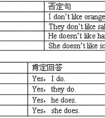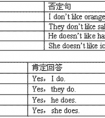Are you aged between 14 and 19 years old? Do you care about the environment around you? Would you please help make the area you live in cleaner and safer?If y-九年级英语
题文
| Are you aged between 14 and 19 years old? Do you care about the environment around you? Would you please help make the area you live in cleaner and safer? If your answers are “yes”, “yes” and “yes”, then read on! You may be surprised to hear that you can actually (事实上) get money for improving your community (社区). The “Big Lottery” is giving money to groups of teenagers who want to become active citizens(公民). We have £80,000 to give away. We’re looking for young people to take part in schemes (规划) and projects near to the places they live in. Here are some easy things you could do to get started: Meeting the neighbors Everybody needs good neighbors. Knock on people’s doors and find out what they need to improve in your areas. Set a date for a meeting and then make some plans together. If you don’t want to go around to their houses, you could always put a note through their doors. Neighborhood watch Neighborhood watch schemes are very popular in the UK. If you go away on holiday and leave your house, it’s very nice to know that a neighbor is keeping an eye on it. You could set one up easily and quickly. Lending a hand There are elderly people living in the neighborhood who may not be able to do the things that you can. Offer to do their shopping once a week, look after their gardens or walk their dogs! No littering Nobody likes picking up rubbish, but a clean street can make all the difference. Take it in turns to go out once or twice a week and see what you can find. You never know, one day you might find something valuable! Recycling Nearly two-thirds of your rubbish can be recycled. Some areas already provide places for people to recycle bottles, tins, plastic and paper. Find out if this is done in your neighborhood. If it is not, do something about it. So go on…help make your neighborhood “street ahead”. Just tell us what kind of project you want to get involved in. Then we’ll send you more details. Take positive (积极的) action and help make your neighborhood a better place to live in! 小题1:What is the passage mainly about?
|
答案
小题1:B 小题2:D 小题3:B |
试题分析:这篇短文主要介绍了如果你为改善社区环境作出了帮助,那么你就可能获得奖励。该规划为人们提供了许多为改善社区环境能做的事情。 小题1:归纳理解题。根据短文的主要内容,它给人们提供了许多可以改善环境的事情,故选B 小题2:细节理解题。根据第二三段The “Big Lottery” is giving money to groups of teenagers who want to become active citizens(公民).可知,如果你为改善社区做了贡献就有可能获得大奖。故选D 小题3:推理判断题。根据短文叙述用第一人称,可以推测,作者是活动中的一员。故选B。 |
据专家权威分析,试题“Are you aged between 14 and 19 years old? Do you care about..”主要考查你对 实义动词,实义动词的单数第三人称形式,动词短语 等考点的理解。关于这些考点的“档案”如下:
实义动词实义动词的单数第三人称形式动词短语
考点名称:实义动词
- 实意动词:
即行为动词,表示动作的动词。实义动词与系动词是相对的,能独立用作谓语。
它分为及物动词和不及物动词两种:
及物动词是指后面要求有直接宾语的动词;
不及物动词指后面不需要跟宾语的动词。 实意动词使用方法:
及物动词
后面必须跟宾语意义才完整的实义动词,叫做及物动词(transitive verb)。如:
I believe that the committee will consider our suggestion.我相信委员会将会考虑我们的建议。
“How long can I keep the book ?”Harry asked.哈里问:“这本书我可以借多久?”
Dr. Bethune set us a good example. 白求恩大夫给我们树立了好榜样。
Crude oil contains many useful substances.原油含有许多有用的物质。
不及物动词
本身意义完整后面不须跟宾语的实义动词,叫做不及物动词(intransitive verb)。如:
Birds fly.鸟会飞。
It happened in June 1932.这件事发生于一九三二年六月。
My watch stopped.我的表停了。
She spoke at the meeting yesterday evening. 她在昨天晚上的会上发了言。
兼作及物动词和不及物动词
英语里有不少实义动词可以兼作及物动词和不及物动词。这样的动词又有两种不同的情况
a)兼作及物动词和不及物动词时,意义不变。试比较:
Shall I begin at once?我可以立刻开始吗?(begin作不及物动词)
She began working as a librarian after she left school.她毕业后当图书馆管理员。(began作及物动词)
When did they leave Chicago?他们是什么时候离开芝加哥的?(leave 作及物动词)
They left last week. 他们是上周离开的。(left 作不及物动词)
b)兼作及物动词和不及物动词时,有时意义不尽相同。如:
Wash your hands before meals.饭前要洗手。
Does this cloth wash well? 这布经得起洗吗?- 英汉实意动词用法比较:
与汉语的比较,有时英语动词的及物和不及物的用法,与汉语的用法不一样,请注意下列两种情况:
a)有的动词在英语里只能用作不及物动词,而汉语则可用作及物动词,如arrive到达,agree同意,listen听。英语里这些动词后面常接介词。如:
We arrived at the railway station at noon.
我们于中午到达火车站。(at不能省去)
(比较:We reached the railway station at noon.)
Everybody listened to the lecture with great interest.
- 最新内容
- 相关内容
- 网友推荐
- 图文推荐
| [家长教育] 孩子为什么会和父母感情疏离? (2019-07-14) |
| [教师分享] 给远方姐姐的一封信 (2018-11-07) |
| [教师分享] 伸缩门 (2018-11-07) |
| [教师分享] 回家乡 (2018-11-07) |
| [教师分享] 是风味也是人间 (2018-11-07) |
| [教师分享] 一句格言的启示 (2018-11-07) |
| [教师分享] 无规矩不成方圆 (2018-11-07) |
| [教师分享] 第十届全国教育名家论坛有感(二) (2018-11-07) |
| [教师分享] 贪玩的小狗 (2018-11-07) |
| [教师分享] 未命名文章 (2018-11-07) |


![How much does it ______ to fly from Yancheng to Hainan Island?[ ]A. cost B. payC. spend D. take-七年级英语](http://www.00-edu.com/d/file/ks/4/2/shiyidongci/2020-01-05/small7dcf2f05998de63e10cc3629787031c81578210087.png)

![He always _____TV in the evening. He _____ listening to the radio. [ ]A. watch, don't like B. watches, doesn't like C. watching, don't like D. watch, do-七年级英语](http://www.00-edu.com/d/file/ks/4/2/shiyidongci/2020-01-05/small45d599b4a60b84e61cec210bfbf051f51578214524.png)
![I'd rather ___ to the Mcdonald's Restaurant because I like to listen to quiet music.[ ]A. to go B. going C. go D. went-八年级英语](http://www.00-edu.com/d/file/ks/4/2/shiyidongci/2020-01-05/small1767bba1727fef2c035c53dcbd9bc20e1578209517.png)
